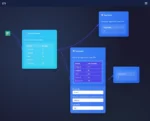Data science is a rapidly growing field that has seen a significant increase in demand in recent years. With the rise of big data and the increasing need for businesses to make data-driven decisions, data scientists have become essential to organizations of all sizes and industries. However, the role of data scientists is not static and will continue to evolve in the coming years.
One of the main ways in which the role of data scientists will evolve is through the increasing use of artificial intelligence and machine learning. As these technologies become more advanced and more accessible, data scientists will be expected to have a deeper understanding of them and to use them to analyze and interpret data in new and more powerful ways. This could include using machine learning algorithms to identify patterns and insights in large data sets, or using natural language processing techniques to analyze unstructured data such as text and speech.
Another important trend that will shape the role of data scientists is the growing importance of data ethics. As data becomes an increasingly valuable asset, organizations will need to ensure that they are using it responsibly and ethically. Data scientists will be expected to understand the ethical implications of their work and to help organizations navigate the complex legal and regulatory landscape surrounding data.
The rise of the Internet of Things (IoT) and the growing amount of data generated by connected devices will also play a significant role in the evolution of the data scientist role. As data from IoT devices becomes more prevalent, data scientists will be responsible for analyzing and making sense of this data in order to extract insights and inform business decisions.
Finally, the role of data scientists will evolve as organizations continue to realize the value of data-driven decision making. Data scientists will be increasingly relied upon to provide insights and recommendations that can inform strategic business decisions. This will require data scientists to have a deep understanding of the business and to be able to communicate the insights they discover in a way that is accessible to non-technical stakeholders.
In conclusion, the role of data scientists is constantly evolving and will continue to do so in the future. Data scientists will be expected to have a broad range of skills including machine learning, data ethics, IoT and the ability to communicate complex insights to non-technical audiences. Organizations that are able to attract and retain data scientists with these skills will be well-positioned to take advantage of the opportunities presented by big data and the increasing importance of data-driven decision making.

























